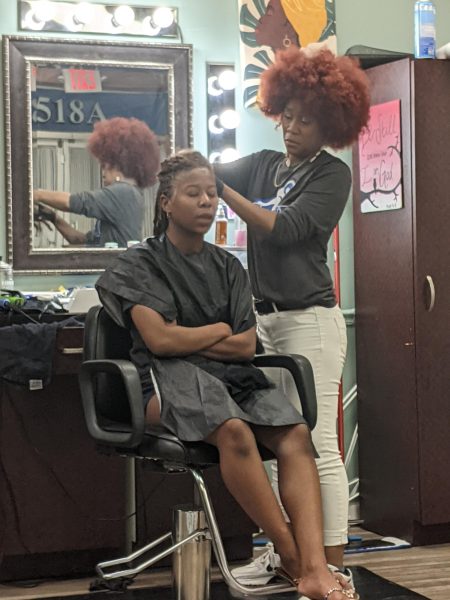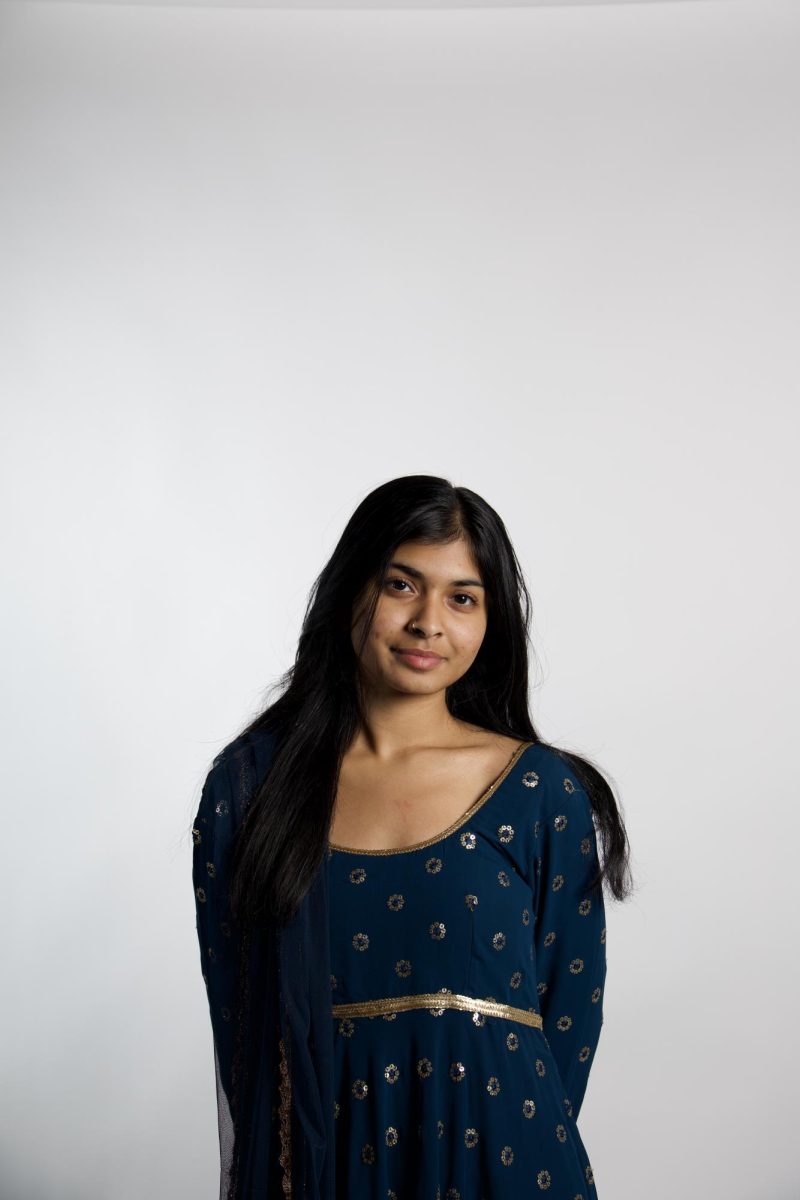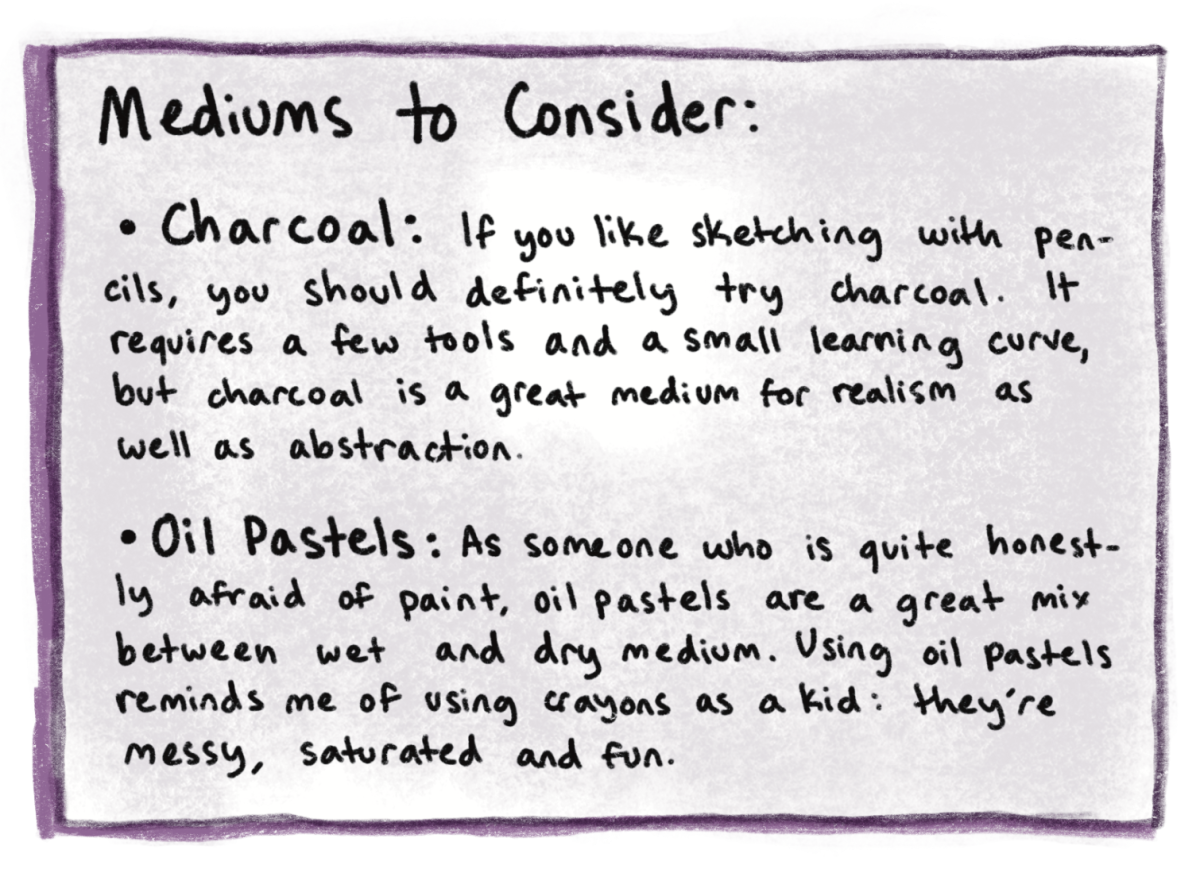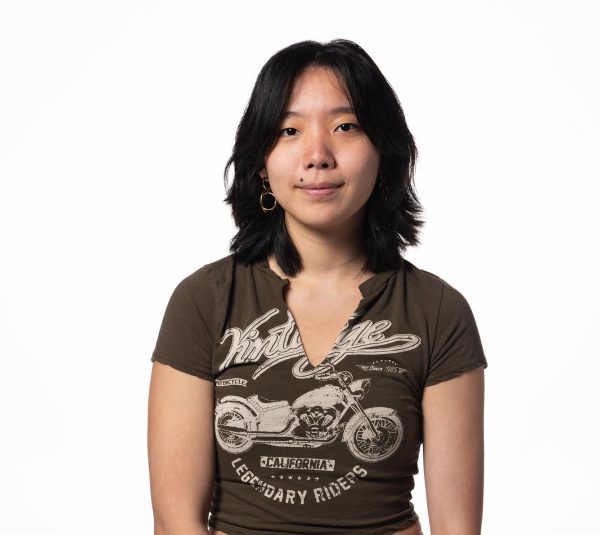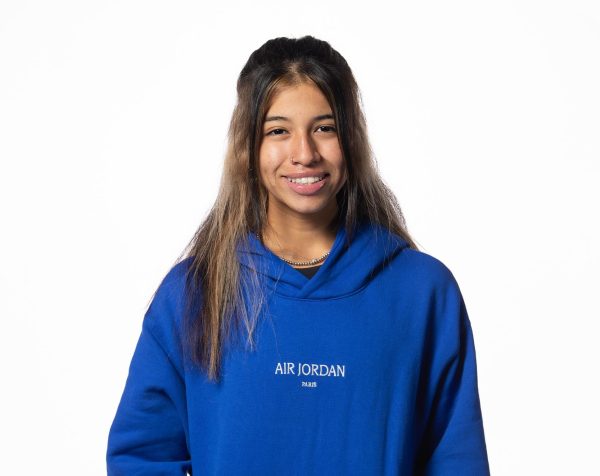When a client sits down in a salon chair, there’s a few things a good hairstylist should take into account. What type and texture is the hair? What products should be used? Should it be cut wet or dry? Blended or layered? Special School District teacher Tachelle Rhiney considers all of that and more. To Rhiney, working with hair is a point of community, an intimate form of connection that can change clients not just externally, but internally as well.
A licensed cosmetologist of almost 25 years and a nonprofessional stylist for even longer, Rhiney comes from a rich background of hairstylists whose passion she’s inherited, and now runs her own salon, Embrace You Salon.
“I think [hairstyling is] definitely cultural,” Rhiney said. “Just about every woman in my family knows how to do hair, and just about all the men know how to cut hair, so it’s kind of a skill that I picked up because everybody was doing it. It was routine and ritual. My mom was kind of an unofficial hairstylist of the neighborhood; she never went to hair school, but she was the neighborhood hairstylist. She did a lot of our neighbor’s hair, their kids’ hair. So for me, it started from just [being] surrounded by it.”
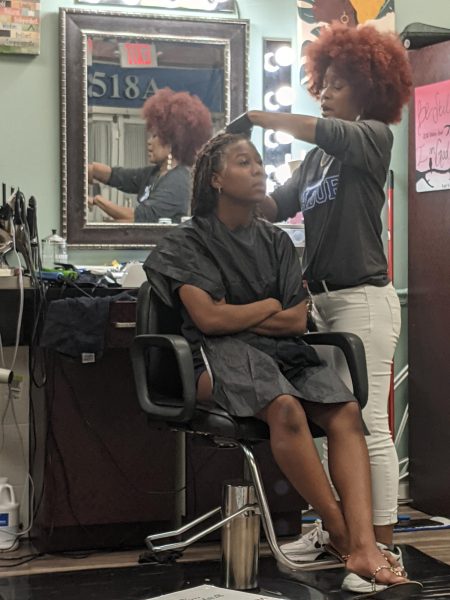
In addition to her familial background, Rhiney also carries a deep consideration for the history of Black hairstyling, which has rich and storied origins within the United States and beyond, hailing back to the pre-slavery era.
“It starts back in Africa as it being just part of our community,” Rhiney said. “When I did my research in many of the African cultures, the hairstylist was just as important as the medicine man, as important as the high priest. This person held a certain power in the community. Once we came to America and there were no ways for us to care for our hair, I think that it became something that we did take care of ourselves.”
Developing a relationship with and learning how to take care of hair can be a rite of passage for Black youth.
“In some African American families, hair can be really tied to spirituality, Hoodoo and stuff like that,” family friend and client Madison Davidson (12) said. “Hair has always been a tie for that stuff and every Black person’s hair journey is different.”
Black hairstyling has historically had challenges stemming from historic and systemic forces that sought to restrict that form of self expression, especially in the United States. But for Rhiney, Black hairstyling in the modern day also provides a unique opportunity for experimenting with beauty, self expression and new styles.
“African hair, Black hair, is some of the most diverse hair you will find,” Rhiney said. “It is hair that can go straight, it can go curly and anything in between. There are very few styles that we cannot achieve. Our hair is diverse, it’s also very connected to us. You can know a lot about a person, especially in black culture, with our hair.”
Rhiney approaches hairstyling and other forms of external style as a way to embody internal feelings, express things that can’t be said aloud and assert autonomy.
“Hair is just that one way of giving you voice,” Rhiney said. “When you can’t say it, if you can express it in your clothes, your hair color, haircut, letting it grow super long or whatever, do it. Let it be part of your healing and your transformation. It’s the one thing you really can have control over, how you present yourself.”
Rhiney’s own hair is often an indicator of the careful attention she pays to her appearance and physical expression, as well as a marker of her day-to-day frame of mind. Many of her outfits, makeup looks and hairstyles are selected days or even a week in advance.
“Her hair identifies [her] mood,” Administrative Assistant and fellow hairstylist Kizzy Hammonds said. “Usually they are always something fun, something vibrant. It’s never anything where someone would say, ‘Oh, you didn’t comb your hair today.’ It’s always well put together. I think it definitely is something that she does to express how her mood is.”
Hammonds, who has worked under Rhiney, has witnessed the care that Rhiney puts into working with clients.
“She has the best hands,” Hammonds said. “I’m very picky because I’m a licensed cosmetologist myself, so I don’t let just anybody in my hair. The way that she takes care of people’s hair, she gets to know the customer first and then she gets to know the hair, what products work, what doesn’t work, what styles may look better. She definitely has that passion behind it.”
As a hairstylist, Rhiney values the connections she creates and the community she builds in her salon.
“So many things are shared with [hairstylists],” Rhiney said. “It is therapeutic for the people who come in. It is spiritual. It is communal. It is a family. Black salons are unique in the sense of, when you walk into a Black salon, it’s not just a business. It’s a home for you. It is a watering hole, that’s what we call it. It’s where you learn the newest and the latest. We talk about everything. You build relationships with clients, they become your family.”
Davidson, who has been a client of Rhiney since childhood, has learned from and developed a bond with Rhiney.
“When I sit her chair, it’s like sitting next to a family member, especially because I’ve known her for so long,” Davidson said. “She always has advice to give. Black hairstylists automatically feel like family. [Salons are] a place for Black people to talk gospel, politics and all that other stuff. It’s a very neutral place; I’ve never seen anyone fight. It’s a very calming, peaceful and cultural area. Taking care of hair has always been very important to the community as a whole.”
For the clients who trust her with their hair as well as their personal lives, Rhiney’s chair provides a unique outlet for change and an opportunity to uplift themselves.
“I’ve had clients who are going through problems,” Rhiney said. “You can tell when they come in and they sit in my chair. I may not pick up on it as fast when they make their appointment, but when they get there, I can feel the energy if they really feel low, or the kids have been running them ragged. They come in, and my job, I think, is to try to turn it around in some kind of way. I have witnessed women, teenage girls, young kids come in [feeling] one way and changing.”
Drastic changes in hairstyling often mark a new stage of life, and Rhiney has been able to witness many of these changes for clients sitting in her chair.
“Women, in particular — when we’re facing a difficult crisis, or we’ve come out of big life change, having a baby, going through divorce, even marriage, we tend to do something different to our hair,” Rhiney said. “The big chops, or the start over. We’re making a different choice, we’re going a different way, and we can express that through our hair.”
That transformation is one of the things Rhiney values the most in her work, and something she seeks to embody in her own day-to-day life on a smaller scale.
“I’m someone who loves to be part of a change or transformation,” Rhiney said. “For me, doing hair is an instant gratification of being able to impact somebody. Every hairstyle gives me a chance to not only teach someone how to do self care, but also how to be their best self. I try to be an example of that. I try to be my best self and do self care, and hair is my way of doing self care.”
The community Rhiney has created in her salon is the primary driver of her continued passion for hairstyling.
“I can’t give it up,” Rhiney said. “As much work as it is to be a full time teacher and also a salon owner, I can’t give it up because of what I know I do for my community. They’re not just clients. Everybody that comes into the salon, they are impacting the world in some kind of way. If I can impact them to be their best self, I’m actually contributing on a micro scale to a very macro concern. Everything’s connected. If I can make that difference with something as small as a hairstyle, I’m going to do it.”



